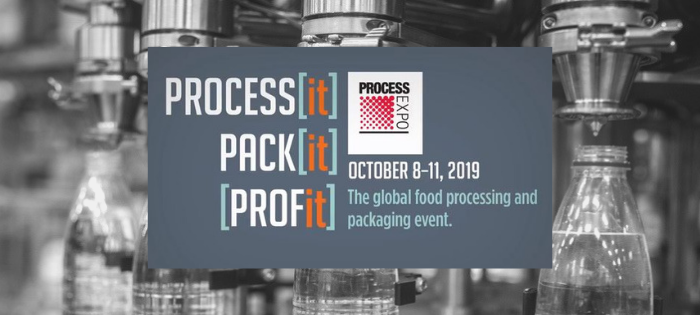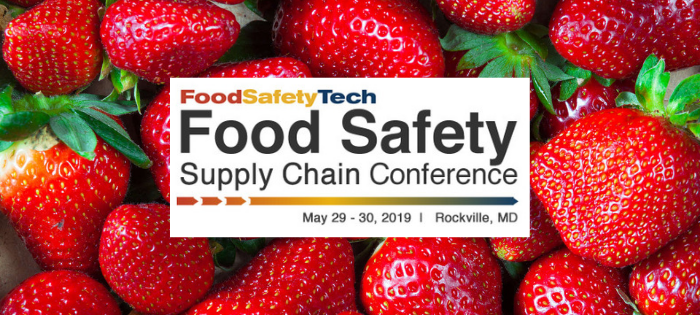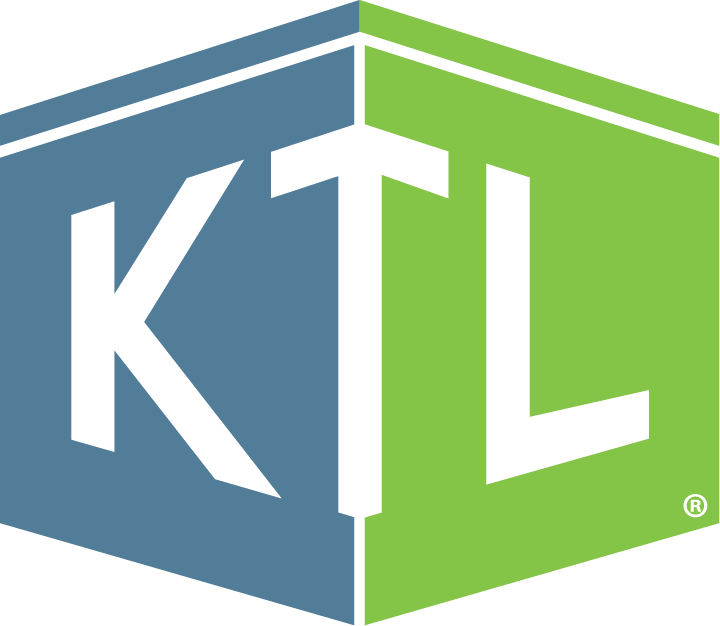
Comments: No Comments
Top 10 Elements of a Certified GFSI Program
The Global Food Safety Initiative (GFSI) relies on a number of benchmarked schemes to establish food safety requirements; all are designed to ensure the quality and safety of a company’s products. In order to become certified to one of these GFSI-recognized schemes, a company must undergo a third-party audit by a certified auditor. Kestrel’s experience conducting these audits has revealed that companies who successfully achieve certification demonstrate a number of common attributes—regardless of their chosen scheme:
- Corrective and preventive actions are up-to-date and current.
- Continuous improvement/root cause analysis process is in place to make ongoing improvements and to ensure final resolutions to all out-of-control issues or non-conformances to the Food Safety Program.
- Premises, facility, and building programs are established and operating, including controls, signage, direction, job training, and physical evidence of a fully implemented Food Safety Program.
- Preventive maintenance system links scheduled maintenance to Hazard Analysis & Critical Control Points (HACCP) critical equipment monitoring requirements.
- Approved materials and process specifications are managed and controlled.
- Product identification and traceability processes are in place, including complete records detailing all activities for the production of food product.
- Document management and control program is updated, validated, and maintained. Developing program management systems helps ensure compliance with document management and control.
- Food safety program updates and management are completed through annual and multi-year planning for maintaining the Food Safety Program, including management of change, management review, approvals, and internal audit.
- Records and verification management systems provide access to supporting data, as determined by FDA/FSMA and company programs.
- Data management of food safety records outlines processes for assuring prompt or immediate access to critical records, as needed, for audit, compliance, or regulatory purposes.

Management Systems – Back to Basics
A management system is the organizing framework that enables companies to achieve and sustain their operational and business objectives through a process of continuous improvement. A management system is designed to identify and manage risks—safety, environmental, quality, business continuity, food safety (and many others)—through an organized set of policies, procedures, practices, and resources that guide the enterprise and its activities to maximize business value.
The management system addresses:
- What is done and why
- How it is done and by whom
- How well it is being done
- How it is maintained and reviewed
- How it can be improved
Creating an Effective and Valuable Management System
Each company’s management system reflects its unique culture, vision, and values. To be effective and valuable, the management system must be tailored and focused on how it can enhance the business performance of the organization. It must also be:
- Useful to people in the operations
- Intuitive—organized the way operations people think
- Flexible—making use of methods and tools as they are developed and documented
- Valuable from the outset—addressing the most critical risks and processes
- Linked to the business of the business (not “pasted on”), with ownership at the operational level
- A means to better align operational quality, safety, and environment with the business
Attributes of an effective management system are senior management expectations and guidance coupled with employee engagement. Importantly, a management system involves a continual cycle of planning, implementing, reviewing, and improving the way in which safety, quality, and environmental obligations and objectives are met. In its simplest form, this involves implementing the Plan, Do, Check, Act/Adjust (P-D-C-A) cycle for continuous improvement.
Auditing for Ongoing Compliance
The connection between management systems and compliance is vital in avoiding recurring compliance issues and in reducing variation in compliance performance. In fact, reliable and effective regulatory compliance is commonly an outcome of consistent and reliable implementation of a management system.
Conducting periodic audits is a practical way to test a management system’s implementation maturity and effectiveness. One of the many advantages of audits is that they help identify gaps so that corrective/preventive actions can be put into place and then sustained and improved through the management system.
Audits also help companies with continuous improvement initiatives; properly developed audit programs help measure results over time. To achieve best value, audits should emphasize finding patterns that can yield opportunities for learning and continual improvement, rather than “gotchas” for exceptions that are discovered.
Management System Standards
Several options are available for structuring management systems, whether they are certified by third-party registrars and auditors, self-certified, or used as internal guidance and for potential certification readiness.
The International Organization for Standardization (ISO) standards are some of the most commonly applied. The ISO standards for quality (ISO 9001), environment (ISO 14001), health & safety (OHSAS 18001), business continuity (ISO 22301), and food safety (FSSC 22000) have consistent elements, allowing organizations to more easily align their various management systems. Aligned management systems help companies to achieve improved and more reliable quality, environmental, and health & safety performance, while adding measurable business value.
Certification
Companies can become certified to each of the standards discussed above. Certification has a number of benefits, including the following:
- Meet customer or supply chain requirements
- Use outside drivers to maintain management system process discipline (e.g., periodic risk assessment, document management, compliance evaluation, internal audits, management review)
- Take advantage of third-party assessment and recommendations
- Improve standing with regulatory agencies (e.g., USEPA, OSHA, FDA, and state programs)
- Demonstrate the application of industry best practice in the event of incidents/accidents requiring defense of practices
However, if there is no market or other business driver, certification can lead to unnecessary additional cost and effort regarding management system development. Certification in itself does not mean improved performance—management system structure, operation, and management commitment determine that.
Business Value
There are a number of reasons to implement a management system. A properly designed and implemented management system brings value to organizations in a number of ways:
- Risk management
- Identify risks
- Set priorities for improvement, measurement, and reporting
- Provide great opportunity to identify, share, and learn best practices, while recognizing operational differences
- Protection of people
- Send people home the way they arrived at work
- Protect the public and the environment
- Compliance assurance
- Improve and sustain regulatory compliance
- Business value
- Continually improve quality, environmental, and safety performance across the organization (employee, public, equipment, infrastructure)
- Reduce incident costs and accrued liabilities
- Protect assets
- Reliability
- Assure processes, methods, and practices are in place, documented, and consistently applied
- Reduce variability in processes and performance
- Employee engagement
- Help employees to find and use current versions of all procedures and documents
- Provide a ready reference for field management to structure location-specific procedures
- Enable the effective transfer of standards, methods, and know-how in employee training, new job assignments, and promotions

Special Food Training at PROCESS EXPO
Produced by the Food Processing Suppliers Association (FPSA), PROCESS EXPO is the nation’s largest trade show dedicated to bringing the latest technology and integrated solutions to all segments of the food and beverage processing and packaging industry.
Are you registered to attend?
PROCESS EXPO
October 8-11, 2019
McCormick Place
Chicago, Illinois
Special Food Safety Training Courses
Kestrel will once again be joining FPSA at the PROCESS EXPO to offer supplemental food safety training courses from Monday, October 7 – Wednesday, October, 9. The FDA training helps the industry, particularly small- and medium-sized companies, to comply with the new preventive controls rules.
HACCP Training HACCP is a systematic preventive approach to food safety from biological, chemical and physical hazards in production processes that can cause the finished product to be unsafe and designs measures to reduce these risks to a safe level. This is a certified 2-day course based on Global Codex and GFSI requirements.
FSVP Training This 2-day course will provide participants with the knowledge to implement the requirements of the FSVP for Importers of Food for Humans and Animals regulation of FDA’s FSMA. The FSVP course meets FSMA compliance, and FPSA certificates will be issued upon successful completion of the course.
Preventive Controls for Animal Food This 2.5-day course is being made available in response to FDA’s final rule requiring covered animal food facilities to establish and implement an animal food safety system that includes an analysis of hazards and implementation of risk-based preventive controls. Completing this course meets FSMA requirements for a PSQI.
Read the full course descriptions online.
Complete your PROCESS EXPO registration to book your food safety training courses today!

Comments: No Comments
Food Safety Supply Chain Conference: May 29
A food company’s supply chain can be the weakest link in the food safety program. Food ingredient adulteration, fraud, and counterfeiting negatively impact everyone in the food supply chain.
Don’t miss the 5th Annual Food Safety Supply Chain Conference — and learn more about regulatory compliance, as well as the tools, technologies, and techniques that can protect your company from the weakest link in your global supply chain.
When: May 29-30, 2019
Where: U.S. Pharmacopeial Convention, Rockville, MD
Details
Plus… Be sure to check out Kestrel’s presentation, Issues & Impacts Surrounding GFSI & FSMA, on Wednesday, May 29 at 1:15 p.m. In this session, you will learn about:
- Differences between GFSI & FSMA
- Key FSMA requirements
- GFSI conformance to FSMA requirements
- How FSMA is addressed in GFSI audits
- How findings are presented at closing meetings
Get Ready…by taking the FSMA IQ Test developed by Kestrel for Food Safety Tech on FSMA supply chain considerations that will be discussed at the Conference.

May 17 Webinar: FSMA, FSVP & VQIP
Learn about best practices and downfalls since the introduction of FSMA FSVP and updates regarding VQIP from Kestrel’s food safety experts and DNV GL, a leading certification body.
Complimentary Webinar
FSMA, FSVP & VQIP: What Have We Learned So Far?
Friday, May 17, 2019
9:00 am – 10:30 am CT
Register now!
Importing food & beverages into the United States can be complex and costly. The Foreign Supplier Verification Program (FSVP) Rule requires importers to verify that their foreign suppliers of food for human and animal consumption meet applicable FDA safety standards. FDA’s Voluntary Qualified Importer Program (VQIP) (TPP) established by the Food Safety Modernization Act (FSMA) provides expedited review and importation of human and animal foods into the United States for approved applicants who achieve and maintain a high level of control over the safety and security of their supply chains.
This complimentary webinar will cover the following topics:
- Validating your FSVP
- Major issues found by FDA
- VQIP importers’ role
- Eligibility and benefits
- VQIP legalities and consequences
- DNV GL FSMA third-party certification

Comments: No Comments
Be Our Guest at BRC Food Safety Americas 2019
On behalf of our team, Kestrel Management would like to invite you to join us at BRC Food Safety Americas on May 21-22 in Coronado, California.
The conference offers invaluable insights and exclusive updates designed specifically to improve food safety management–and we want to offer you the chance to attend at a discounted rate (see below).
You’ll learn more on:
- Preparing for and passing inspections
- Food safety culture and training
- Identifying and controlling contamination
- Future-proofing food safety
- Traceability within the supply chain
When you register, use our discount code KESTREL15 and receive a 15% discount off your BRC Food Safety Americas registration. Join us in California this May!

Comments: No Comments
GFSI Internal Audit Process
GFSI requires a robust auditing function for every organization seeking food safety certification. Specifically, GFSI certification requires that:
- Internal audits are established.
- Supplier audits are conducted.
- External service audits are used.
Each individual GFSI scheme requires internal audits for Food Safety Management System (FSMS) conformance, and each has its own specific internal audit requirements:
- SQF: Internal audit requirement must show that the FSMS is established to meet the standard.
- BRC: There needs to be an effective audit system to verify that the FSMS covers the standard.
- IFS: Effective internal audits shall be conducted according to a defined and agreed-upon program that covers the requirements of the standard.
- FSSC 22000: The company plans, conducts, and reports on internal audits to ensure that the FSMS has been effectively implemented and maintained.
Planning to Meet Requirements
Meeting these GFSI requirements involves developing a strong internal audit program that uses internal resources and trained and certified auditors to perform internal audits. Lack of a properly designed or implemented internal audit process is one of the most common GFSI non-conformances.
It takes planning and strategy to create and implement an effective internal audit program. Kestrel often works with companies to determine the most effective internal audit development process, create a strategy for the audit program, and assist in its subsequent implementation.
All requirements under GFSI must be developed to assure a robust and well-functioning internal audit program, including development of:
- Internal audit process
- Process review
- Effective audit schedule
- Trained internal auditors
- Strong corrective/preventive action program
- Appropriate links to Management Review
Once these elements are developed, conducting required audits allows the company to identify the areas for improvement. Once non-conformances are identified, it is important to evaluate potential approaches and determine what will allow for the greatest improvements, while also meeting GFSI requirements. Following the management system Plan-Do-Check-Adjust cycle helps to ensure continual operational and food safety improvements.
Planning to Realize Benefits
This “planning” approach to internal audits leads to a number of benefits. The company will:
- Become more capable of managing the internal audit process on its own.
- Learn to identify non-conformances within current practices.
- Create opportunities for continual improvement by following the Plan-Do-Check-Adjust cycle.
- Realize subsequent quality improvements and cost reductions.
- Gain a better understanding of the GFSI management system requirements.
- Be better positioned to achieve GFSI certification.
Internal audits identify possible non-conformances and show continuous improvement of the management system for the certifying organization. Auditing on a regular basis further creates an environment where continual improvement occurs naturally.

Comments: No Comments
Join Kestrel at Food Safety Summit 2019
Each year, Kestrel looks forward to the Food Safety Summit as one of the premier events in the food industry. Join our experts to discuss industry trends and solutions to your food safety challenges.
- When: May 6-9, 2019
- Where: Donald Stephens Convention Center, Rosemont, Illinois
- Who: Retailers, food processors, distributors, food manufacturers, growers, foodservice, testing laboratories, importing/exporting, law firms, and other food safety professionals
- Find Kestrel: Stop by our booth (#214) in the exhibit hall!
Kestrel is proud to provide our ongoing support for the manufacture, processing, and distribution of safe food. We look forward to seeing you in Rosemont!

Overview of FSMA for Chemical Distributors
Join NACD and Kestrel on Thursday, April 4 at 12:00 p.m. (EDT) for a webinar on the U.S. Food and Drug Administration’s (FDA) Food Safety Modernization Act (FSMA). During this webinar, Kestrel’s Roberto Bellavia, Principal in Food Safety Compliance, will provide an overview of FSMA rules applicable to the chemical ingredients industry, focusing on the receiving, storage, production, blending, and transportation of these products. Register here.
This webinar is a precursor to an upcoming in-person NACD regulatory workshop during which Kestrel will cover the FSMA regulations in-depth. This workshop will take place on June 12-13 in Oak Brook, Illinois, immediately following the Central Region Meeting. Registration for the workshop is forthcoming.

IFS Focus Day: April 2019
IFS Focus Day Returns this Spring!
April 24, 2019 9:30 am – 3:00 pm
Delta Hotels Burnaby | 4331 Dominion St. | Firenze Room
Burnaby, BC V5G 1C7
Make plans to join IFS North America representatives Pius Gasser and Cheryl Sullivan; Bulldog Bag’s Alan Kenney; and AIB’s Siarl Dixon for our complimentary IFS Focus Day.
Agenda:
9:30 am: Registration
10:00 am: Welcome
10:30 am: Why IFS
11:00 am: The Certification Experience
11:15 am: FSMA Compliance Update
Noon: Lunch
12:45 pm: Risk Assessment
1:45 pm: IFS in the Eyes of a Certification Body (CB)
2:15 pm: IFS in North America
2:30 pm: Discussion
3:00 pm: Adjourn
To register, email sullivan@ifs-certification.com
Note: Space is limited for this FREE event!
Sponsored by Kestrel Management | GCP Consulting | AIB International

